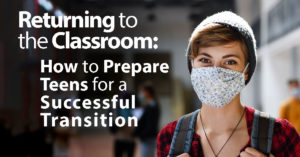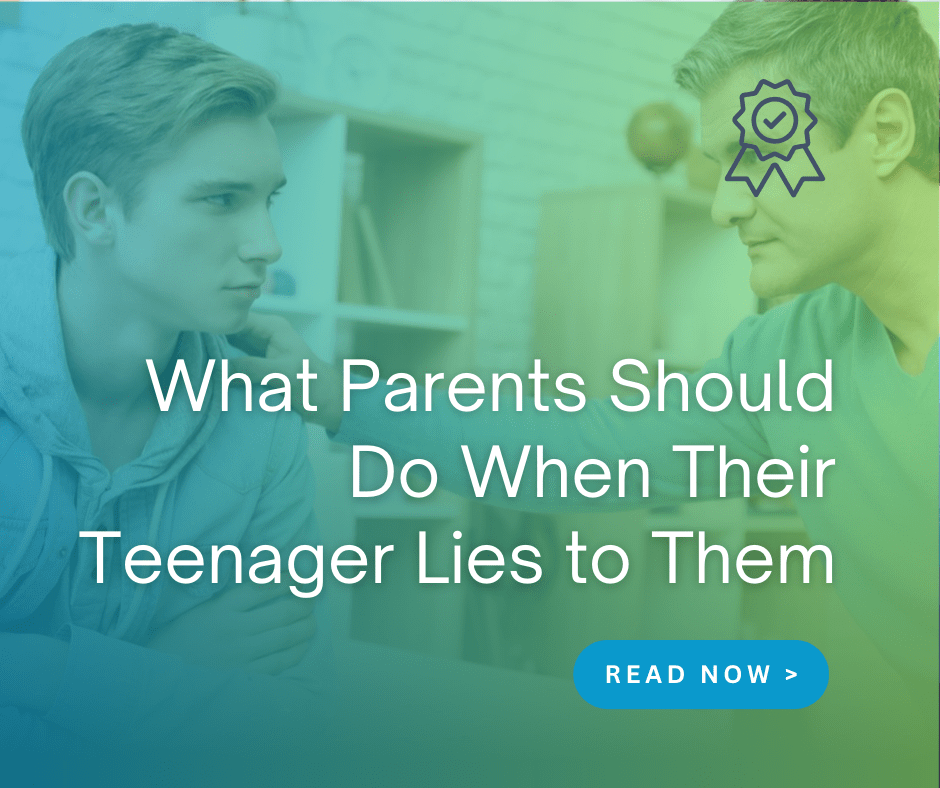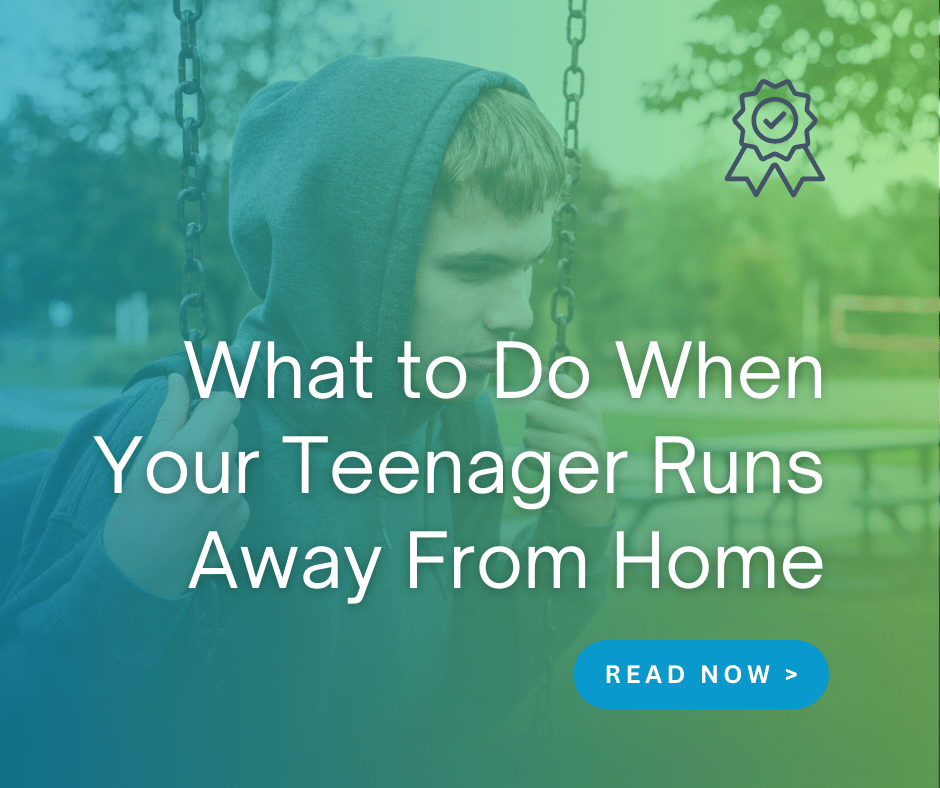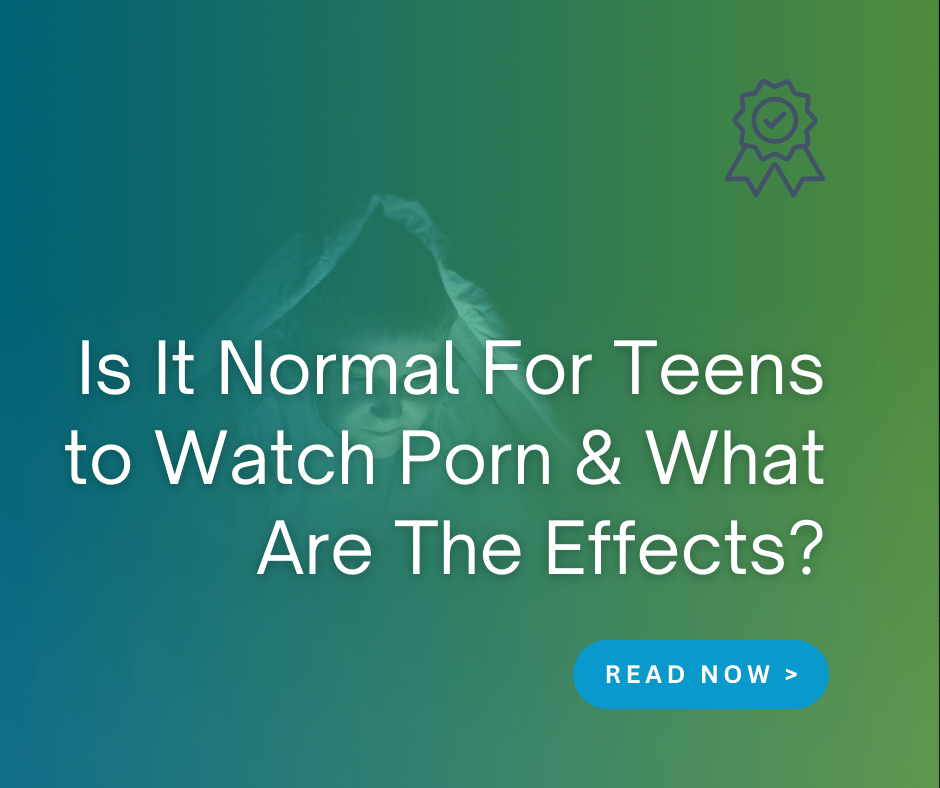 With the publication of the latest guidance from the Centers for Disease Control (CDC) on opening schools safely, and updated safety guidance regarding the COVID-19 Delta variant, many educational institutions around the country are beginning to open for in-person instruction, if they haven’t opened already.
With the publication of the latest guidance from the Centers for Disease Control (CDC) on opening schools safely, and updated safety guidance regarding the COVID-19 Delta variant, many educational institutions around the country are beginning to open for in-person instruction, if they haven’t opened already.
This news comes as a relief for some parents who’ve had their children at home for most of the past year. At the same time, it may be a whose children have pre-existing mental health issues or have developed symptoms of mental health or behavioral issues during COVID.
Teens who weren’t struggling before the pandemic may now be facing symptoms of mental or behavioral issues as a result of COVID-related stressors.
In light of this evidence, here are some tips on preparing your adolescent for the transition back to school. We’ll include signs to watch for that indicate your teen might need professional support before they return. If their school is already open and in-person, these tips can help you understand what to watch for during this adjustment period, especially the first three weeks when issues are most likely to become apparent.
We created a guide to help you prepare your teen or any students you know transition back to in-person learning. Download and read our booklet on “How to Prepare Teens For a Successful Transition Back to the Classroom.”

[clearfix]
1. Re-establish routines.
COVID-mandated school closures relaxed many families’ schedules. Curfews may have loosened. Structured mealtimes may have been replaced by more flexible eating habits. And, despite your best intentions, screen time limits may have been thrown out of the window altogether.
Now, it’s time to bring those rules back. It takes time to settle back into a routine, and you don’t want your teen to start school sleep-deprived and bleary-eyed from watching Tik Tok videos till 4 am. Explain why you’re re-tightening the rules so they’ll understand the rationale behind the changes and be more willing to comply.
- What to watch for: If teens can’t return to their previous sleeping, eating, and activity routines, there may be a problem. Teens struggling with mental health issues may find it difficult to get out of bed, attend to their hygiene, and function as they used to. If their appetite and sleep patterns have changed and they’ve lost interest in activities they used to enjoy, consider making an appointment with a licensed mental health counselor for an evaluation. Teens showing those signs may be experiencing depression, anxiety, or another mental health disorder, and may benefit from treatment before they return to in-person classes.
2. Review the schedule.
Take time to sit down with your adolescent to review the upcoming schedule. What will the week look like, day by day? If they’re doing a hybrid schedule, what days will they be home and what days will they go to school? How much time do they need in the morning to shower, eat breakfast, get dressed, and get to school on time?
Teens transitioning to middle school or high school will also probably have new teachers, new classmates, new classrooms, and in many cases, school buildings that are entirely new to them. Creating a set schedule together, along with thinking through and estimating how long the morning routine, travel, and other things will take, will help your teen prepare emotionally and mentally for the upcoming changes.
- What to watch for: If your teen hasn’t participated in virtual learning for days (or weeks) and has consistently neglected their class and homework assignments during virtual school, then you need to have a different conversation altogether. For adolescents who are unable to keep up with online learning due to mental health, addiction, or behavioral issues, in-person school might be out of the question right now. They’re unlikely to instantly transform once in-person class resumes. Their schedule and academic demands will get more difficult over time. Teens having problems now may need treatment to get to the source of the issues that hamper their ability to participate fully in their education – whether virtual or in-person.
3. Remind them about safety measures.
Your teen’s school will likely have strict COVID measures in place to minimize the risk of transmission once they reopen. While specific rules will vary from school to school, most schools will require teens to wear masks (at least for a portion of time), socially distance, and wash their hands frequently. Review school rules with your teen and emphasize the importance of following them.
We created a guide to help you prepare your teen or any students you know transition back to in-person learning. Download and read our booklet on “How to Prepare Teens For a Successful Transition Back to the Classroom.”

[clearfix]
This is also a good time to have a conversation about peer pressure. Discuss your family protocols and precautions surrounding COVID-19 safety and help them understand that other families may see and do things differently. Friends at school who take a different approach towards COVID may pressure them to engage in behavior you and your family see as risky. For example, remind your teen it’s okay to wear a mask and maintain social distance, even if some of their friends don’t wear masks or follow distancing guidelines.
- What to watch for: If your teen has been indifferent to COVID guidelines or has blatantly disregarded pandemic public safety rules, consider whether they’re ready to go back to in-person classes. Teens who show no concern for the health or safety of themselves or others may be put others in danger with risky behavior, they may face disciplinary action at school. If your teen is resistant to safety measures and refuses to follow them, they may benefit from professional treatment and support before returning to school.
4. Validate their feelings.
Your teen may have conflicting feelings about returning to school, and that’s okay. This has been a hard year. Some schools have been closed since last March. Others have been open on and off. Some never closed. Families have been facing uncertainty about everything on a constant basis.
Your teen may be afraid to get too excited about school because they fear schools may abruptly close again. Or they may be thrilled about certain aspects of in-person schooling, such as seeing their friends, but worried about other things, such as bullying or academic challenges. Listen to their feelings, take time to explore their concerns, acknowledge whatever they share with you, and help them work through their emotions when you can.
- What to watch for: If your teen is terrified of or unwilling to go back to school, that may be a sign of a larger problem. While some hesitancy toward returning to school is normal, elevated fear that prevents teens from participating fully in school is not. Teens with excessive fear or extreme resistance might be struggling with mental health issues, such as social anxiety, depression, obsessive-compulsive disorder (OCD), agoraphobia, attention deficit hyperactivity disorder (ADHD), or other emotional/behavioral disorders.
5. Check in regularly.
Even if your adolescent is excited to go back to school to see friends and return to normal life, problems can arise over time. Teens may have a good couple of weeks, but then begin to flounder as the excitement wears off and pressure starts to mount.
- What to watch for: Be on the lookout for emotional, social, and academic issues not only when in-person school resumes, but also in the weeks and months that follow. Monitor your kids daily and check in regularly to see how things are going. Also, be sure to use the school portal to track their academic progress. Missing assignments and poor grades can be early warning signs that your teen is struggling.
6. Partner with the school.
If your child has an individualized education plan (IEP) or 504 plan, contact the school to figure out how their accommodations will be addressed given the current COVID-19 protocols. How will the school handle social distancing for kids who need a special place or extra time to test? Will they be able to get up and walk around, or get support if needed? If your child has fallen behind, how will the school help them catch up? It may be helpful to set up a meeting to talk through these questions.
- What to look for: If you notice attitude changes, difficulty sleeping or eating, or low grades, or you hear concerning reports from your teen or their teachers, your child may need more support than they’re receiving at school. Even if teachers and school administrators are doing all they can to meet students’ needs, teens who struggle with anxiety, depression, or other mental health disorders may fall behind. Addressing the underlying issues with a mental health professional can put your child in the best position to succeed at school.
We created a guide to help you prepare your teen or any students you know transition back to in-person learning. Download and read our booklet on “How to Prepare Teens For a Successful Transition Back to the Classroom.”

[clearfix]
Tips for Talking With Your Teen
Many parents want to help their kids during this back-to-school transition period, but communicating with teenagers can be a challenge. When they try to talk, they receive blanks stares, shrugs, or mumbled, one-word non-responses.
So what do you do when you try to open up and your teen doesn’t want to engage?
The first step is to set up a time to talk. Before you talk, make sure they’re not otherwise distracted. Your teen most likely won’t be excited about a heart-to-heart when they’re in the middle of a Snapchat streak with their best friend or focused on an epic game of Minecraft.
Once you have their attention, ask them how they feel about going back to school. If they’ve already started in-person classes, ask how it’s going.
Try saying this to your reluctant-to-talk teen:
“I’d really like to talk with you about the transition back to school at a time that’s good for you. Are you available at 8 o’clock tonight?”
Phrasing it in this way does two things: (1) it sends the message that the conversation is important and necessary, and (2) it gives your teen the respect they deserve. Once you have their attention, ask them how they feel about going back to school. Most teens will be happy about going back to school if they feel isolated and miss their friends.
If you sense, though, that your teen is unhappy about going back, take the time to dig a little deeper. Ask gently, “What’s your hesitancy? What is this subject bringing up for you right now?”
If they don’t answer right away, just wait. Be patient. Stay quiet. Give them the space they need to gather their thoughts and reply. If they have complex emotions around returning to school, they may not know how to articulate them.
When they start talking, make sure to listen actively. Don’t interrupt. Don’t answer too quickly. Refrain from rattling off a list of reasons they shouldn’t worry. Do not dismiss their comments and concerns. If they share something with you, that means it’s really an issue for them.
Additionally, keep your own feelings about school reopening out of the conversation. You yourself might be stressed, anxious, excited, or apprehensive – or all of the above – about your teen going back to school. Perhaps you’re nervous about school closing again if students test positive for COVID-19. Maybe you’re concerned about how your child will handle the stress of in-person instruction, or you’re unsure they’re ready to go back.
Whatever the case, try your best not to pass your negative emotions on to your child. Teens absorb much more than we think – and they pick up on your emotions whether you want them to or not.
Your job during this conversation is to listen.
We created a guide to help you prepare your teen or any students you know transition back to in-person learning. Download and read our booklet on “How to Prepare Teens For a Successful Transition Back to the Classroom.”

[clearfix]
Warning Signs: Mental and Behavioral Issues
If your teen is unusually distressed about going back to school, or refuses to go back altogether, there could be a problem. Evidence shows that the pandemic has degraded the mental health of the general population, with adolescents and young adults experiencing some of the highest rates of adverse consequences. For some teens with mental health, substance abuse, or behavioral issues, though, quarantine at home was easier to handle than in-person school – and that’s why they may worry about going back.
In addition to isolation, loss is another major contributing factor toward depression and other mental health issues. Loss – whether it’s the death of a loved one or the cancellation of major events – is a source of grief. Major events for teens include milestone celebrations and highly anticipated moments such as prom, homecoming, senior trips, graduation, and more. Think of all the things your teen has looked forward to since they knew they’d be a high school student. The loss of those things may cause them to grieve, and they may not understand what it is they feel or why they feel it. This jumble of uncomfortable emotions can contribute to the symptoms of new or preexisting mental health disorders.
Here’s a list of things to watch for if you think your teen may have developed a problematic mental health issue over the past year.
Signs of a Possible Mental Health, Substance Use, or Behavioral Disorder
- Low energy
- Decreased physical movement
- Frequent crying
- Persistent sadness or moodiness
- Changes in weight and/or appetite
- Changes in sleep habits (sleeping more or sleeping less)
- Decline in personal hygiene
- Less interaction with friends
- Slowed or disorganized thought and speech
- Persistent fatigue
- Alcohol or drug use
- Low self-esteem
- Feelings of worthlessness
- Excessive guilt
- Inability to think clearly, concentrate, or make decisions
- Irritability
- Angry outbursts
- Psychosomatic complaints (physical symptoms like aches or pains that stem from emotions)
- High-risk behaviors (such as distracted driving or risky sexual behavior)
- Self-harming behavior
- Thoughts of death or suicide*
*DO NOT IGNORE SUICIDAL THOUGHTS OR BEHAVIOR*
If your teen talks about suicide, have them evaluated by a mental health professional at a teen treatment center ASAP – and If you think your child is in immediate danger, call 911 or go to the nearest emergency room. If there’s a psychiatric hospital nearby, go there.
When you notice any of these signs, contact a licensed mental health counselor or teen mental health treatment center and arrange for a full evaluation of your teen. This past year has been difficult, and COVID-related isolation has led to an increase in mental health problems for many teens and young adults.
Other Problematic Behaviors and Issues
School closures and changes in your work schedule may mean you’ve spent more time with your teen than usual during the past year. As a result, you may have noticed that your teen, at times, engages in problematic behaviors.
Stress related to the coronavirus pandemic exacerbated drug use and other high-risk behaviors worldwide for people of all ages. Studies show rates of suicidal ideation, substance use, and self-injurious behavior have increased since the start of the pandemic, with teens and younger adults experiencing particularly alarming increases in adverse mental health symptoms.
If your teen engages in any of the behaviors below, we recommend seeking professional support as soon as possible:
- Alcohol use
- Drug use (including marijuana)
- Vaping
- Self-harming behavior (such as cutting)
- Suicidal ideation, which includes:
- Thinking about suicide
- Talking about suicide
Teens struggling with depression or anxiety often use these behaviors as coping mechanisms to handle internal pain and/or uncomfortable thoughts or emotions. While a guide like this cannot diagnose your teenager or recommend a treatment plan, it’s likely that adolescents who display the behaviors listed above need mental health, substance abuse, or dual diagnosis treatment provided by qualified professionals. During treatment at an adolescent behavioral health treatment center, teens can learn how to manage their overwhelming emotions in productive ways – without turning to alcohol, drugs, or other life-interrupting behaviors.
Don’t Delay Treatment: Get Help Before Returning to School
The world is gradually reopening, and our society is slowly returning to a new normal. You may be back at work or hoping to be back soon. And most adolescents in the U.S. will be back in class sooner rather than later.
But what if your teen isn’t ready to go back to school? What do you do if they need 24/7 care and supervision due to mental health, substance use, or behavioral issues?
They may need residential treatment – not school.
Sometimes parents wait too long to seek treatment and support for their children. Parents may think “it’s just a phase.” Or “things will get better once they’re back in school.” Things might get better, but evidence shows they often get worse.
While mild symptoms may fade once teens are back in school, acute mental health and addiction issues are more likely to intensify upon return. Studies show that early intervention gives teens the best chance of treatment success. That’s why it’s important to get mental health or addiction treatment as soon as possible.
Don’t ignore these issues and hope they’ll disappear once school restarts.
If you observe signs of a mental health, substance use, or behavioral disorder in your teen, take action. We recommend contacting a teen mental health and substance abuse treatment center to schedule an evaluation. If a mental health professional recommends treatment, then your teen can receive high-quality, evidence-based treatment before heading back to school.
When their symptoms allow them to function at home and participate in their typical daily activities, they may benefit from intensive outpatient or partial hospitalization treatment. If their symptoms prevent them from functioning at home as they used to, or if their behavior threatens the health and safety of themselves and/or others, residential treatment may be necessary.
Contact Evolve Treatment Centers to discuss your teen’s symptoms. Our admissions counselors can help you determine which level of care is appropriate.
If you have any questions about your teen’s transition back to school, reach out to us for a complementary evaluation. Our licensed clinicians will be happy to answer your questions.
We created a guide to help you prepare your teen or any students you know transition back to in-person learning. Download and read our booklet on “How to Prepare Teens For a Successful Transition Back to the Classroom.”

[clearfix]












